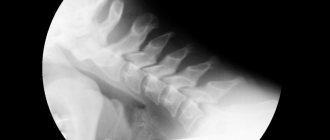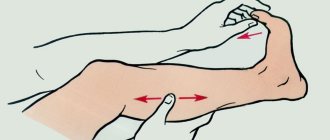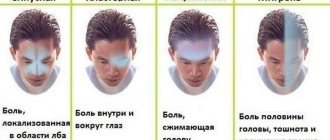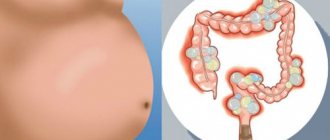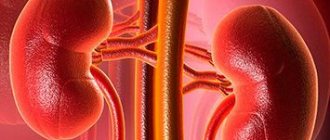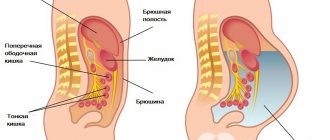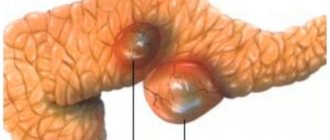Sore throat is a common symptom of diseases of the pharynx, which are quite diverse and include inflammation, neoplasms and injuries. The classic version of pain in the throat that occurs with or without swallowing is acute inflammation of the tonsils (tonsillitis) or exacerbation of chronic tonsillitis.
In addition to pain, these pathologies are characterized by a rise in temperature, redness of the pharynx, palatine arches, tonsils, as well as multiple purulent deposits in the follicles or lacunae of the tonsils. You can read more about these diseases in the articles: lacunar tonsillitis, follicular tonsillitis, treatment of tonsillitis in children.
What are other causes of pain or soreness in the throat?
Symptoms accompanying problematic swallowing
Content:
- Symptoms accompanying problematic swallowing
- Medical classification of sore throat
- Reasons for discomfort when swallowing
- How to find the source of the disease
- Swallowing as an indicator of serious illness
- Self-medication is the first step towards complications
- Treatment regimens for the disease
- First aid measures at home
Severe pain localized to the throat often goes away within a few days after the doctor has prescribed complex treatment with antibiotics. But prescribing any type of medication to yourself, even if the discomfort only bothers you on one side, is strictly prohibited.
Only a doctor can make an accurate diagnosis after examining the patient. Experiments with self-medication are especially dangerous when the victim experiences wave-like attacks, and he does not know exactly how to treat the inflamed area.
At the initial appointment, the expert will first determine whether the syndrome is affecting a specific area or whether the entire throat is affected. Additional markers are also taken into account, among which are chills, fever, acute pain when trying to even just swallow saliva, and not just eat.
A number of accompanying signs of damage are taken into account, such as coughing, unpleasant squeezing in the Adam's apple, burning, or a feeling as if everything inside is on fire. Sometimes the pain is so severe that it seems to be localized to the esophagus.
Frequent sneezing, tickling, and refusal to eat become classics of acute respiratory infections. Some diseases provoke enlargement of the lymph nodes, the causes of the changed state of which may include both minor anomalies and neoplasms.
There are even cases in clinical practice where people have suffered from all of the above for years, causing standard laryngitis and pharyngitis to degenerate into a chronic form, which is much more difficult to get rid of.
Stiffness in the neck is also considered an indicator of patterned symptoms of throat damage from pathogens. Moreover, it doesn’t matter at all which side he feels more tension on: the right or the left.
Sometimes, in addition to the above signs, a number of not very typical symptoms are added, such as complaints that the palate hurts, the tongue turns red, and a runny nose is tormented.
Diagnostics
To find out the cause of pain when swallowing, the doctor will prescribe the following tests to the patient:
- General blood analysis.
- General urine analysis.
- Blood chemistry.
- Ultrasound of internal organs.
- X-ray.
- FEGDS.
- CT and MRI.
- Test for tumor markers.
- Blood for hormones.
You do not have to undergo all of the above studies. The doctor adjusts the diagnostic scheme depending on the symptoms of the disorder and the patient’s condition at the time of admission.
Medical classification of sore throat
Regardless of whether the pathology develops in a child or an adult, the classification of pain remains identical. Most often, together with wheezing in the chest, they signal the onset of the development of acute respiratory diseases, sore throat. You should expect such an unfavorable outcome after hypothermia.
Schematically, such discomfort is divided not only by where its source is located: on the left or on the right, but also by nature. There are three categories of pain:
- cutting;
- pulsating;
- spicy.
Moreover, the pain intensifies closer to night, when the victim begins to prepare for bed. One of the three common types of lesions can be determined by reflex swallowing.
When it becomes clear that the syndrome is becoming almost unbearable, folk remedies will not help. Such a sharp transition signals the development of complications, which are most often caused by tonsillitis.
Next, the specialist will have to determine the specific location of the lesion during the examination, and only then the doctor will ask you to swallow saliva. Based on the sensations during a simple test, it will be possible to more accurately classify the degree of damage, which is especially important during pregnancy.
But all of the above, accompanied by a headache, refers to direct pathologies of the throat. What to do if the most common diagnoses are not confirmed? Then problems with swallowing are associated with abnormalities in the functioning of other organs, including an anatomically incorrectly located tongue.
The latter is congenital in nature, but even if it is unclear where the difficulty with swallowing came from appeared relatively recently, this is not a reason to postpone a visit to the therapist. After examining the supposedly affected part and the sternum, he will redirect you to a specialist to understand the original source of the disease.
Regardless of whether the victim suffers from sharp pain or periodic, aching pain, there is no point in postponing a visit to the clinic. Examining the throat from the right side through a mirror will not always allow the average person to detect the symptoms of a sore throat. Often it “settles” in the lingual tonsil.
When the syndrome does not go away, and the source of the lesion is felt in the lower part of the throat or in the middle, then this most likely indicates the onset of tonsillitis of the lingual tonsil. If discomfort is felt on the mucous membrane, then this may indicate the entry of a foreign object such as small fish bones that did not reach the stomach.
Some patients mistakenly believe that chewing and swallowing solid food will allow them to get rid of a foreign object. In fact, such an experiment will not lead to any good, because an abscess may form in the nasopharynx, which will have to be removed surgically.
Severe sore throat during pregnancy and lactation: how to treat it
Although traditional methods of treatment , industrial preparations in the form of sprays and rinses can be used in severe cases. But be sure to consult with an ENT specialist: he can prescribe procedures in a clinic that, in case of tonsillitis, will help to quickly cope with the infection without the use of antibiotics. During pregnancy, it is permissible to take antibiotics in the 2-3 trimester , but not all drugs are available and it is better to do without them, therefore, for example, deep rinsing of the tonsils with chlorhexidine would be preferable.
Reasons for discomfort when swallowing
If a patient complains of discomfort in the throat area, this does not always mean that he has become a victim of another viral epidemic in the winter. The presented symptoms can also manifest themselves under other conditions that provoke malaise. Looking for a solution to neutralize pain through a forum is not a good idea. Experts advise first making an appointment with a doctor to determine what exactly triggered the deterioration in your health.
Some very common reasons include:
- incorrect temperature at home;
- harmful working conditions;
- weakened immunity due to a recent serious illness or stress;
- hypothermia;
- poor nutrition.
With such recurring risk factors, it is extremely important not just to figure out how to relieve depressing symptoms. It is equally important to take care of eliminating these problematic factors, so that after some time you will not again be interested in how to extinguish the fire in the oral cavity.
Doctors insist that during infancy, up to two years, children are more susceptible to swallowing difficulties than others. Also included in the risk category are those who have not had their wisdom teeth fully treated and the elderly. Particular attention is required for those victims whose thyroid gland does not function as it should.
Some victims complain of an identical clinical picture with osteochondrosis. In addition to the classic inability to swallow calmly, they have to put up with lumbago in the shoulder blade. Only complex therapy aimed at restoring the body’s strength will help here, so that the lumbago no longer radiates to the back.
Among other groups that fall into the high-risk category are those people whose professional activities are closely related to the tension of the vocal cords, which is typical even for children.
Among the indirect causes that lead to unpleasant sensations in the nose and vocal cords include:
- failure to comply with hygiene rules;
- smoking;
- exacerbation of an allergic reaction;
- tension when trying to speak louder.
In some cases, the pain is so severe that it begins to radiate to the sky.
Stomatitis
If your throat hurts very much when swallowing, but there are no signs of infectious diseases, then the cause may be a fungal condition of the oral cavity (thrush).
© shutterstock
Causes
More often, fungal infections occur in people with weakened immune systems. The causative agent is opportunistic microorganisms – fungi of the genus Candida.
Predisposing factors for the proliferation of the fungus are:
- bad teeth;
- long-term use of antibacterial agents;
- frequent microtraumas of the oropharynx.
Failure to maintain oral hygiene can also cause stomatitis.
Signs
In addition to the fact that there is pain in the throat and it is painful to swallow, a person’s external examination reveals characteristic signs.
- the oral cavity is covered with a loose white coating;
- When the films are removed, erosions and small bubbles filled with cloudy exudate are visible.
When the vesicles rupture, aphthous ulcers appear.
Patients complain that it is painful to even swallow water and it is difficult to talk. With an acute infection, the temperature will rise and weakness will appear.
Treatment
Therapeutic methods depend on the severity of the pathology:
- external treatment with solutions and gels against fungus (rinsing, using gels for the oral cavity) for mild fungal infection;
- taking antifungal drugs in addition to sanitation of the oropharynx for severe fungal rashes.
Some patients try to mechanically remove the plaque that has appeared, mistakenly believing that this way recovery will occur faster. This cannot be done - when removing loose plaque, the oral mucosa is damaged and the risk of a secondary infection (bacteria or viruses) increases.
In addition to therapeutic measures, patients are recommended to treat or remove diseased teeth.
Who treats
If a white coating appears and it hurts to speak and swallow, you should consult a dentist.
How to find the source of the disease
A red throat is an eternal companion to acute respiratory diseases and influenza. A viral infection enters an organism weakened for some reason through the respiratory tract, settling in the trachea and other organs of the system. It is enough to simply get your share of pathogens when you inhale by inhaling the air next to an infected person who is coughing. You can become infected by eating common food, for example, when a sick person bites off a candy bar and his saliva remains at the site of the bite.
It is much easier to find medicines for relatively easily treatable pathologies such as acute respiratory infections. But if the victim experiences pain in the jaw, as well as a number of other atypical reactions, then this may indicate more serious pathologies. If you have diagnosed mononucleosis, chicken pox, or measles in adults, you won’t be able to get away with a couple of days of bed rest, as with a cold. The patient will require emergency hospitalization.
Of the relatively rare pathologies that lead to abnormal swallowing, not only diseases of the thyroid gland are noted. No painkillers help if gastric juice enters the esophagus due to a violation of the sphincter relaxation process. The acrid juice, instead of going along the natural route, enters the esophagus, adding a stabbing sensation to the person. Irritation of the esophagus is accompanied by sore throat and discomfort between the shoulder blades. Such constant soreness gradually exhausts the victim.
There are often cases when a slight pain in the larynx occurs due to the frequent role of a passive smoker, or prolonged stay in rooms with increased pollution.
If discomfort is additionally localized in the abdomen, you will need to immediately make an appointment with a gastroenterologist. In the absence of visible symptoms of characteristic gastrointestinal ailments, viral diseases with a runny nose, the applicant will be sent to take a test for HIV and for the presence of candidal stomatitis.
Tumors
Tumors are divided into benign and malignant. Of the benign tumors, only large adenomas can make swallowing difficult and cause some pain. Malignant neoplasms necessarily in their development come to the stage of periodic or constant pain. Most often, tumors grow from the tonsil and soft palate. Less often - from the back wall of the pharynx.
- Tumors of the epithelium (epitheliomas) begin with superficial ulceration, then give regional lymphadenitis with a wooden density of nodes fused together. As it progresses, the depth and extent of the ulcer increases, and pain increases with a characteristic reflection in the ears.
- Lymphosarcoma causes swallowing, breathing and pain disorders.
- Reticulosarcoma is similar to lymphosarcoma, but differs in earlier metastasis.
- Of the external tumors, thyroid cancer deserves attention, which also causes difficulty in painful swallowing, a sensation of a foreign body in the lower parts of the pharynx, and neck pain. As the tumor grows, it makes breathing difficult, causing shortness of breath and coughing, as well as swelling of the neck and hoarseness of the voice.
- Also, with lymphomas (symptoms), a sensation of a lump in the throat and difficulty swallowing may occur.
Swallowing as an indicator of serious illness
ENT experts unanimously say that it is extremely important to find the cause of the deteriorating health of the throat immediately, and not to waste time. Otherwise, you can wait until chronic tonsillitis or pharyngitis develops, when the pain already reaches the back of the head. No one can be protected from this, even those who have already had their tonsils removed in the past.
Everyone else will have to be on alert immediately after the appearance of a dull pain in the specified area, which will become a marker of pharyngitis of one of two types:
- bacterial;
- viral.
Moreover, the first version, despite the accompanying terrible fatigue, is much easier to treat. The accompanying signals confirming the diagnosis are not lumbago in the spine, but:
- cough;
- runny nose;
- conjunctivitis.
If the patient is not cured immediately, then he will face chronic pharyngitis, which cannot be gotten rid of as easily as a dry cough. You will have to be treated with ultrasound, electrophoresis, laser.
According to a similar principle, tonsillitis “attacks,” which brings severe pain, weakness, and irritability into the life of the victim.
The situation with oncology is much more complicated; pain and problematic swallowing cannot be eliminated using conventional means. Here, to prevent difficulty breathing, you will need to undergo a course of chemotherapy.
Signs of a sore throat
Acute infectious pathology is caused by bacteria - streptococci, staphylococci, and sometimes other microorganisms. Severe intoxication and inflammation of the tonsils are classic signs that accompany tonsillitis. A severe sore throat, hyperthermia, weakness, and weakness are the most common complaints of such patients. Discomfort in the joints and lower back may occur. Often a headache occurs with a sore throat. A person experiences a feeling of dry mouth.
At the same time, many patients feel how much their throat and ear hurt. Unfortunately, in this case we are talking about the spread of a pathological process in the body. Self-medication is completely unacceptable here, since the infectious-inflammatory process can also affect the brain.
Treatment regimens for the disease
Today, even if an attack suddenly begins at night, you can run to the pharmacy to buy essentials to neutralize poor health. Some of them, included in the list of so-called first aid at home, are even available without a prescription. But such accessibility should not radically change the attitude towards treatment. You will still have to visit a doctor for testing and an accurate diagnosis of the causes of strange clicking vocal cords.
Schematically, all medications that can eliminate pathology can be divided into three groups:
- antibiotics;
- anti-inflammatory;
- antiseptics.
With extensive inflammation, representatives of all three groups are usually attracted at once. Moreover, antiseptics that help disinfect the throat during painful swallowing can be divided into two subcategories:
- single drugs;
- combined.
Only the attending doctor can say for sure what will best mitigate the course of the disease. The main task of any type of antiseptic is not just pain relief. The emphasis is on the bactericidal effect, which is designed to ease the hellish pain. Combination drugs even include anesthetic components.
But taking antibiotics in the morning without first consulting a doctor is not a good idea. It is likely that the victim was tormented by neuralgia, which to treat with antibiotics would only spoil the stomach. Therefore, it is so important to first determine the original source of redness near the tonsils during an examination by a doctor, and then run to the pharmacy.
Herbal infusions
Herbal medicine is used very effectively for those patients who have a severe sore throat. Folk remedies, including medicinal herbs, help fight infection and colds. They relieve pain perfectly.
For the decoction, it is recommended to take chamomile, plantain, sage, elderberry, eucalyptus, and calendula. A collection of several herbs is quite effective.
If you use one herb for the decoction, it is recommended to take 1 teaspoon per glass of boiling water. When using several components at once, you need to take half a teaspoon of each. The product should be infused for 10 minutes.
A sore throat should be gargled with the resulting herbal decoction at least 4 times a day. If the discomfort is accompanied by severe hoarseness and a dry cough, then a spoonful of honey should be added to this remedy.
Injuries
Closed (blunt) laryngeal injuries occur due to bruises, a car accident, or while playing sports. Very often, various cartilage fractures, ligament ruptures or organ separation are observed. Causes a painful shock. Upon palpation in the area of the Adam's apple and below, displacement and movement of the cartilage is noticeable. May be accompanied by hemoptysis, chest and throat pain.
Internal injuries can occur as a result of medical procedures. They are sometimes caused by foreign bodies trapped in the larynx. In this case, severe pain is observed inside the organ. When you cough, blood clots may come out.
Burn injuries occur due to inhalation of caustic fumes or hot air. They manifest themselves as suffocation, severe coughing, and pain in the lower part of the organ and in the chest.
Sometimes the ligaments rupture due to strong screaming or coughing. Accompanied by severe pain and complete dysphonia (lack of voice).
All traumatic conditions require immediate treatment. Surgery is also possible. Painkillers, anti-inflammatory and decongestant drugs are prescribed.
Overgrowth of the thyroid gland
The so-called goiter of a diffuse or nodular nature develops.
In the first case, the organ grows evenly, increasing the mass of thyrocyte cells.
In the second, the growth is uneven. Specific nodules form on the gland itself, but they need to be differentiated from the early stages of cancer, which is very common.
The causes of the development of pathology are almost always endogenous. There are two main factors at play.
The first is the abuse of iodine preparations. This element comes from food or specialized medications.
The second significant factor is the excessive secretion of pituitary hormones, in particular TSH, which “spurs up” the work of the organ. As a result, functional growth of gland tissue and its enlargement occurs.
If it hurts to swallow but your throat doesn’t hurt, the reason may be hidden in the growth of the thyroid gland.
It puts pressure on the throat, causing discomfort, usually below the Adam's apple. In this case, the pain radiates (sends) to the outer parts of the oropharynx.
A similar process is accompanied by the development of thyrotoxicosis (excessive amounts of organ hormones in the blood), which affects the general condition of the patient.
Here there is a rapid decrease in body weight, hyperthermia, pain, and a change in the relief of the neck. Treatment is to reduce iodine intake.
Thyroid cancer
It occurs quite often (ranks 10-15th among primary tumors, according to various estimates).
It is usually diagnosed during an examination for other pathological processes. A biopsy and histological examination are required.
A cancerous tumor causes compression of surrounding structures and, as a result, a sore throat when swallowing saliva.
Prevention
Throat diseases can be avoided if you follow simple rules of a healthy lifestyle. The list of useful actions includes hardening, proper balanced nutrition, walks in the fresh air, active recreation, sports, and giving up bad habits such as alcohol and smoking.
Any complex throat disease can be prevented in time and eliminated in the initial stages, following the advice and recommendations of the attending physician. Correct therapy guarantees the result in the form of absolute recovery. You should not delay treatment and make unclear diagnoses on your own; treatment of the throat, as well as other organs, should always be trusted to specialists.
When can you no longer delay contacting specialists?
Serious diseases that occur with an increase in temperature to critical levels are fraught with complications. And also, the transition to the chronic stage, therefore strict supervision of doctors until the onset of remission is extremely important. If a sore throat or pneumonia is diagnosed, then of course the baby will be admitted to a hospital for treatment.

